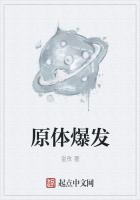It will be recollected that before the accession of Louis XVI. the Cardinal de Rohan was disgraced in consequence of his intrigues;that all his ingenuity was afterwards unremittingly exerted to obtain renewed favour; that he once obtruded himself upon the notice of the Queen in the gardens of Trianon, and that his conduct in so doing excited the indignation it deserved, but was left unpunished owing to the entreaties of the best friends of the Queen, and her own secret horror of a man who had already caused her so much anguish.
With the histories of the fraud every one is acquainted. That of Madame Campan, as far as it goes, is sufficiently detailed and correct to spare me the necessity of expatiating upon this theme of villany. Yet, to assist the reader's memory, before returning to the Journal of the Princesse de Lamballe, I shall recapitulate the leading particulars.
The Cardinal had become connected with a young, but artful and necessitous, woman, of the name of Lamotte. It was known that the darling ambition of the Cardinal was to regain the favour of the Queen.
The necklace, which has been already spoken of, and which was originally destined by Louis XV. for Marie Antoinette--had her hand, by divorce, been transferred to him--but which, though afterwards intended by Louis XV. for his mistress, Du Barry, never came to her in consequence of his death--this fatal necklace was still in existence, and in the possession of the crown jewellers, Boehmer and Bassange. It was valued at eighteen hundred thousand livres. The jewellers had often pressed it upon the Queen, and even the King himself had enforced its acceptance. But the Queen dreaded the expense, especially at an epoch of pecuniary difficulty in the State, much more than she coveted the jewels, and uniformly and resolutely declined them, although they had been proposed to her on very easy terms of payment, as she really did not like ornaments.
It was made to appear at the parliamentary investigation that the artful Lamotte had impelled the Cardinal to believe that she herself was in communication with the Queen; that she had interested Her Majesty in favour of the long slighted Cardinal; that she had fabricated a correspondence, in which professions of penitence on the part of De Rohan were answered by assurances of forgiveness from the Queen. The result of this correspondence was represented to be the engagement of the Cardinal to negotiate the purchase of the necklace secretly, by a contract for periodical payments. To the forgery of papers was added, it was declared, the substitution of the Queen's person, by dressing up a girl of the Palais Royal to represent Her Majesty, whom she in some degree resembled, in a secret and rapid interview with Rohan in a dark grove of the gardens of Versailles, where she was to give the Cardinal a rose, in token of her royal approbation, and then hastily disappear.
The importunity of the jewellers, on the failure of the stipulated payment, disclosed the plot. A direct appeal of theirs to the Queen, to save them from ruin, was the immediate source of detection. The Cardinal was arrested, and all the parties tried.
But the Cardinal was acquitted, and Lamotte and a subordinate agent alone punished. The quack Cagliostro was also in the plot, but he, too, escaped, like his confederate, the Cardinal, who was made to appear as the dupe of Lamotte.
The Queen never got over the effect of this affair. Her friends well knew the danger of severe measures towards one capable of collecting around him strong support against a power already so much weakened by faction and discord. But the indignation of conscious innocence insulted, prevailed, though to its ruin!
But it is time to let the Princesse de Lamballe give her own impressions upon this fatal subject, and in her own words.]
"How could Messieurs Boehmer and Bassange presume that the Queen would have employed any third person to obtain an article of such value, without enabling them to produce an unequivocal document signed by her own hand and countersigned by mine, as had ever been the rule during my superintendence of the household, whenever anything was ordered from the jewellers by Her Majesty? Why did not Messieurs Boehmer and Bassange wait on me, when they saw a document unauthorised by me, and so widely departing from the established forms? I must still think, as I have often said to the King, that Boehmer and Bassange wished to get rid of this dead weight of diamonds in any way; and the Queen having unfortunately been led by me to hush up many foul libels against her reputation, as I then thought it prudent she should do, rather than compromise her character with wretches capable of doing anything to injure her, these jewellers, judging from this erroneous policy of the past, imagined that in this instance, also, rather than hazard exposure, Her Majesty would pay them for the necklace. This was a compromise which I myself resisted, though so decidedly adverse to bringing the affair before the nation by a public trial. Of such an explosion, I foresaw the consequences, and I ardently entreated the King and Queen to take other measures. But, though till now so hostile to severity with the Cardinal, the Queen felt herself so insulted by the proceeding that she gave up every other consideration to make manifest her innocence.















